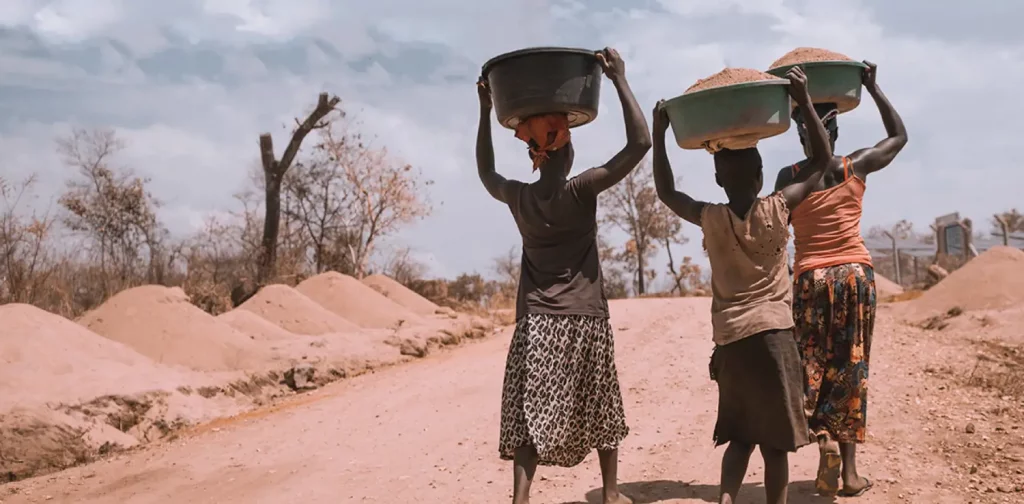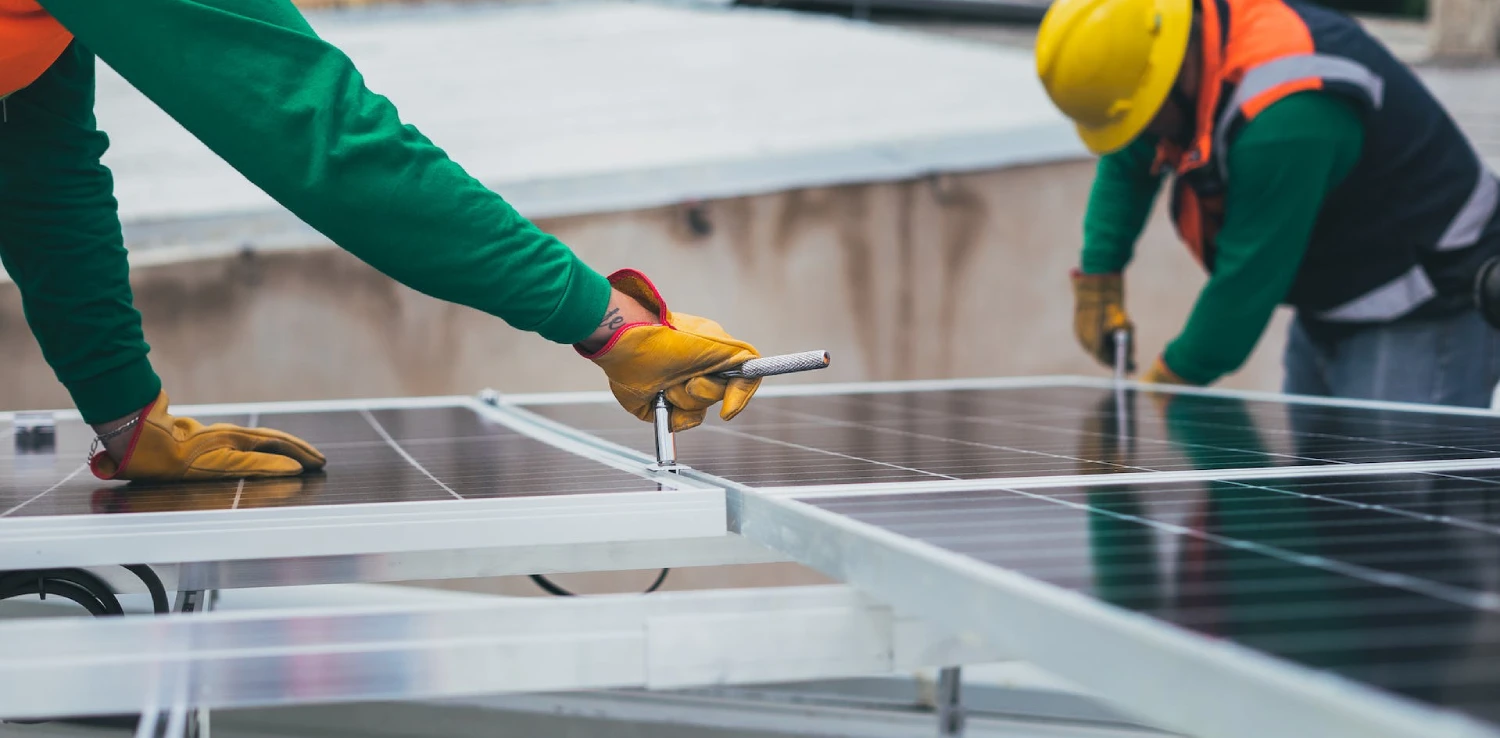Modern Slavery in the Energy Sector: The Unintended Cost of Decarbonization

Photo: Ninno JackJr on Unsplash.
The energy transition is significant for climate mitigation. The shift towards renewable energy, electric vehicles, and other transition mechanisms has developed over the years. However, a just energy transition must include creating decent work opportunities for all. Addressing modern slavery in the energy sector is one of the most fundamental steps in achieving a just transition for people and the planet.
Modern Slavery in the Energy Sector
Slavery may seem like a thing of the past. Unfortunately, it is still very much present today. In 2021, nearly 50 million people were trapped under modern slavery. Modern slavery refers to situations where one cannot refuse to leave due to threats, violence, coercion, deception, and power abuse. Human trafficking, forced labor, and forced marriage all fall under the umbrella of modern slavery.
Modern slavery can exist in every stage of the supply chain. As the push for renewable energy increases, concern arises over the increasing risk of modern slavery deployed in the renewable supply chain, especially in the production of renewable energy technologies and products.
Solar panels, in particular, have received a spotlight over this matter. The Global Slavery Index 2023 report by the human rights organization Walk Free shares that G20 countries imported USD 14.8 billion worth of solar panels that are considered at risk of modern slavery. It is the fourth most valued at-risk imported goods below electronics, garments, and palm oil.
A study by the University of Nottingham Rights Lab shares that critical components of solar panels are produced in places where forced labor and child labor are still prevalent. For instance, approximately 40% of the global polysilicon supply comes from the Xinjiang Uyghur Autonomous Region. Additionally, between 15% and 30% of the cobalt for lithium-ion batteries is mined in the Democratic Republic of Congo.
The Roles of Businesses and Governments

Addressing modern slavery in the energy sector will require systemic intervention from multiple key actors in the industry, including governments and energy companies, at national and international levels.
Energy companies’ participation is key in addressing this issue. Responding to modern slavery must be integrated as a part of their operations, such as through supply-chain mapping and tracing, due diligence, and adaptation of existing risk management practices.
Around the world, energy companies have also established anti-modern slavery policies to address the issue. Earlier in 2023, over 340 energy companies in the United States signed the Solar Industry Forced Labor Prevention Pledge, aiming to support the development of an industry-led solar supply chain traceability protocol.
Governments must also invest and build resilient systems for modern slavery responses. Another report by Walk Free found that gaps still exist in how businesses fulfill their obligations under the Modern Slavery Act established by the governments of the United Kingdom and Australia. The gaps include ineffective reporting, exclusion of workers’ perspectives, and lack of modern slavery risk disclosures. Therefore, clear and effective government legislation on modern slavery is key.
A Just Energy Transition
Modern slavery is rooted in extreme inequality. By definition, it doesn’t fit the just transition principles, which seek to provide a fair and inclusive transformation that leaves no one behind. Therefore, the progress for a just energy transition must not leave room for modern slavery.
At its core, addressing modern slavery in the energy sector must be rooted in the fundamental principle that everyone has the right to lead a life free from coercion and any forms of violence. Additionally, achieving decent work for all also entails respecting workers’ rights regarding their safety and income.
Therefore, the energy sector must develop a transition roadmap based on human rights principles that involve consultations with all relevant stakeholders. It is especially vital to include and take into account the experience of the affected and vulnerable workers to formulate a fair and inclusive roadmap.
Furthermore, governments, businesses, and organizations must collaborate to create a systemic change with clear, coordinated, and responsible policies, legislations, and initiatives to address modern slavery. In the end, any forms of human rights violation and environmental degradation must not be the unintended cost of our decarbonization efforts.
Editor: Nazalea Kusuma


 Indian Gig Workers Push Back Against 10-Minute Delivery Service Strain
Indian Gig Workers Push Back Against 10-Minute Delivery Service Strain  Call for Governance: Grassroots Initiatives Look to Scale Efforts to Conserve Depleting Groundwater
Call for Governance: Grassroots Initiatives Look to Scale Efforts to Conserve Depleting Groundwater  Integrating Environment, Climate Change, and Sustainability Issues into Education Systems
Integrating Environment, Climate Change, and Sustainability Issues into Education Systems  Finally Enforced: Understanding the UN High Seas Treaty
Finally Enforced: Understanding the UN High Seas Treaty  Risks and Opportunities of Submarine Communication Cables for Sustainable Development
Risks and Opportunities of Submarine Communication Cables for Sustainable Development  Rising Attacks and Violence Against Land and Environmental Defenders
Rising Attacks and Violence Against Land and Environmental Defenders